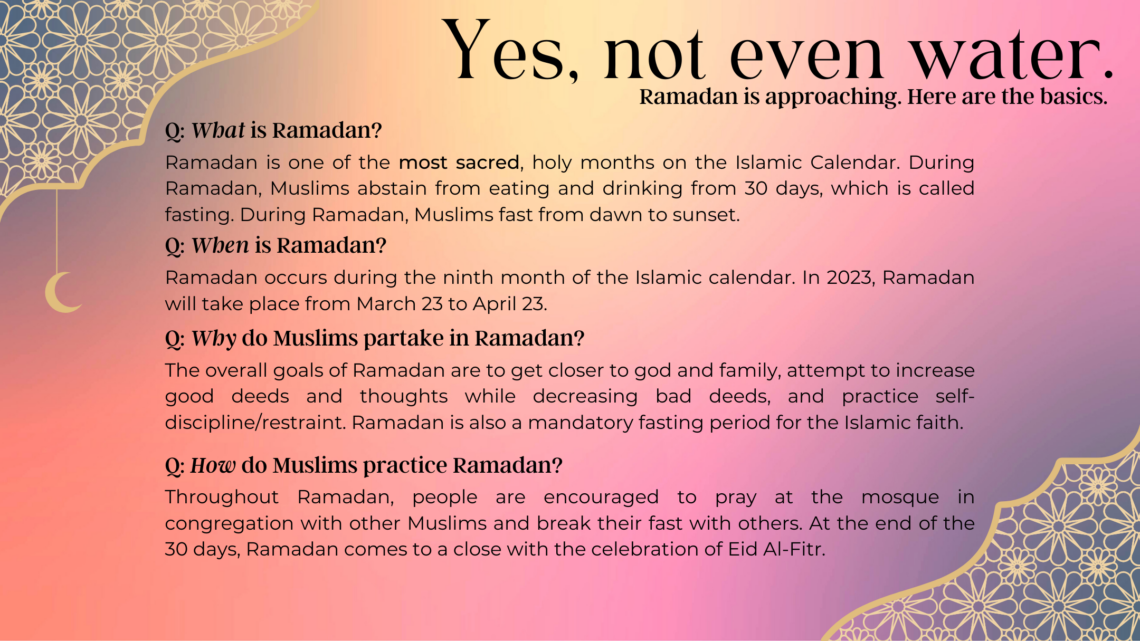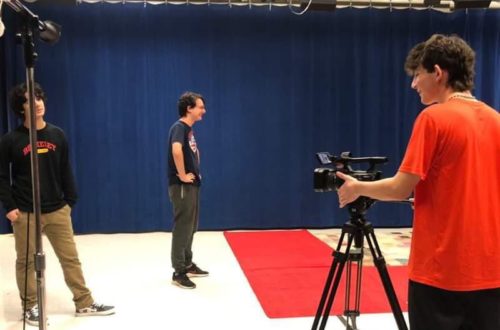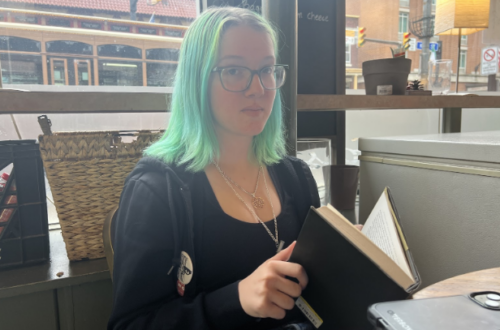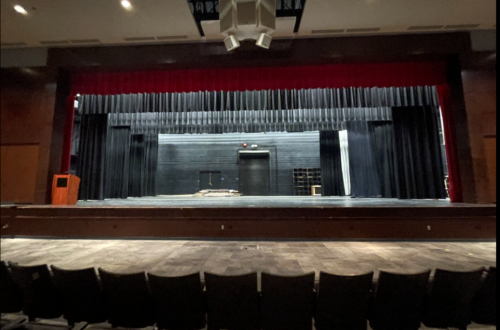Salma El Gourchal
Staff Writer
When your friend abstains from lunch, the natural instinct is to ask why. A few times a year, Muslims usually hear, “Hey, why arent you eating?”
“I’m fasting for Ramadan,” they reply. But what exactly is Ramadan?
Ramadan is one of the most sacred and holy months for a Muslim, a follower of Islam. Ramadan occurs once a year during the ninth month of the Islamic calendar. It lasts 30 days.
In 2023, Ramadan will take place from March 23 to April 23. Ramadan is the month of fasting, where one doesn’t eat or drink. Fasting lasts from the Fajr prayer, which is at dawn, until the Maghrib prayer at sundown. The breaking of the fast is called iftar. During iftar, families and friends come together, generally with home-cooked cultural meals, to feast and end their day’s worth of fasting.
Many Muslims wake up just before dawn to eat a small meal to last through the day, referred to as Suhoor. Fasting is one of the five pillars of Islam, the other four being daily prayers, charity, pilgrimage to Mecca, and the oral profession of faith, known as the shahada. Fasting is mandatory, and people are expected to start fasting once they hit puberty or otherwise in their pre-teens. Although it is obligatory, the sick, pregnant and nursing and menstruating women are exempt from fasting for the period of time they are in that state during Ramadan. After that period of time, people who fall under those categories are expected to make up the days. It is greatly encouraged to start making them up once the current Ramadan ends to avoid building up the missed days before the following year’s Ramadan. Alongside fasting, the overall goals of Ramadan are to get closer to God and family, attempt to increase good deeds and thoughts, decrease bad deeds and practice self-discipline and restraint. Ramadan is also used to cleanse the soul and empathize with those in the world who are hungry and less fortunate.
Throughout Ramadan, people are encouraged to pray at the mosque in congregation with other Muslims and break their fast with others. At the end of the 30 days, Ramadan comes to a close with the celebration of Eid Al-Fitr. On Eid Al-Fitr, families typically go to their local mosque for Salat Al-Eid or Eid prayer in English. During Eid Al-Fitr, Muslims are required to donate money to a charitable cause through any mosque. After Eid prayer, family and friends come together for an all-day feast and celebration for the completion of Ramadan and reflect on the month. Ramadan is a period for Muslims to reflect, gather, learn and improve as practitioners of Islam and human beings.






